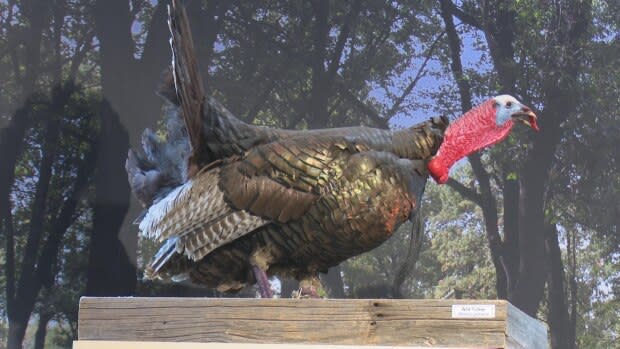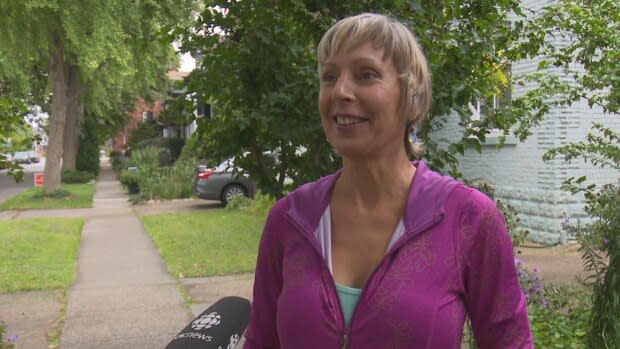Don't feed Walkerville's wild turkeys, says biodiversity expert
Over the past few weeks, Windsor resident Elaine Weeks says she's noticed a family of wild turkeys stop by her Walkerville neighbourhood almost every morning.
"We think it's a family — a dad, a mom and a child, but full-grown," she said. "I think they've been actually crossing Wyandotte Street, which is incredible to think about, and they've been coming up our street."
According to Weeks, the turkeys don't really do very much, preferring to wander around the neighbourhood in search of something to eat, rather than causing any mischief.
"They're very docile. They don't attack. They don't threaten. They're very tame," said Weeks. "You can walk up beside them, and we just think they're great."
Tom Preney, a biodiversity coordinator with the City of Windsor, said turkeys are good flyers, adding it's likely they could simply be looking "for new areas to expand their range."
"We don't know population numbers here in the City of Windsor, but we know that the population is doing quite well," said Preney.

Residents aren't allowed to hunt wild turkeys within city limits, which has led to a growth in wild turkey populations each year, according to Preney.
He said wild turkeys are typically in search of food this time of year, with seed-bearing trees providing an ample source of nutrition.
"A lot of the acorns that have fallen to the ground are great food sources for wild turkeys," Preney said.

In winter, wild turkeys tend to group together to form large flocks.
"They don't hibernate, they don't migrate, they just look for food scratching on the ground — things like berries and seeds," said Preney.
And while Weeks says the Walkerville turkeys are friendly, Preney still suggests residents keep their distance — even if they do see turkeys safely crossing the street.
"They are wild animals," said Preney. "And I wouldn't recommend putting food out to encourage them to stick around."


